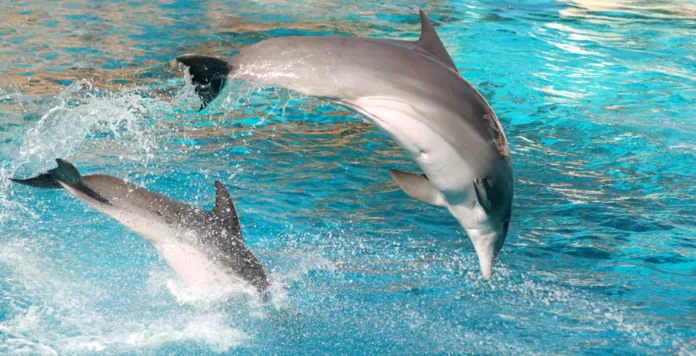Unusual flipper morphology spurs speculation on genetic anomalies
Embed from Getty ImagesIn a groundbreaking discovery, scientists have identified the world’s first dolphin with ‘thumbs,’ leaving researchers intrigued and puzzled. The peculiar dolphin, spotted off the coast of Greece in the Gulf of Corinth, exhibited hook-shaped protrusions on its flippers, a feature previously unseen in cetaceans.
Photographs of the extraordinary dolphin were captured by researchers from the Pelagos Cetacean Research Institute during boat surveys this summer. Despite the distinctiveness of its flipper morphology, the dolphin seamlessly interacted with its pod, engaging in activities such as swimming, leaping, bow-riding, and playing.
Alexandros Frantzis, the scientific coordinator and president of the Pelagos Cetacean Research Institute, expressed his surprise, stating, “It was the very first time we saw this surprising flipper morphology in 30 years of surveys in the open sea and also in studies while monitoring all the stranded dolphins along the coasts of Greece for 30 years.”
The Gulf of Corinth, known for its diverse marine life, houses around 1,300 striped dolphins, including the newfound individual. The anomalous flipper, distinguished by its hook-like shape, raises questions about potential genetic irregularities and inbreeding within the species.
Scientists hypothesize that the peculiar flipper may result from the expression of rare and ‘irregular’ genes, contributing to the unique morphology observed. Lisa Noelle Cooper, an associate professor of mammalian anatomy and neurobiology, suggested that the ‘thumbs’ may be due to an altered genetic program during the dolphin’s developmental stages.
Cooper commented, “I’ve never seen a flipper of a cetacean that had this shape,” emphasizing the rarity of the discovery. Despite the genetic anomaly, the dolphin appears to thrive, reassuring researchers about its well-being.
These unprecedented ‘thumbs’ add a new dimension to the study of marine life, showcasing the intricate genetic diversity within cetacean populations.
